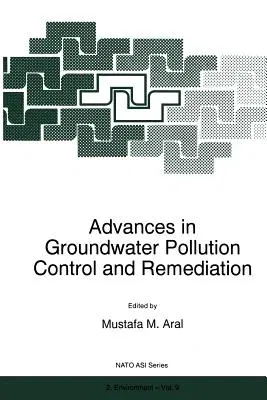Advances in Groundwater Pollution Control and Remediation (Softcover Reprint of the Original 1st 1996)Paperback - Softcover Reprint of the Original 1st 1996, 28 September 2011

Qty
1
Turbo
Ships in 2 - 3 days
In Stock
Free Delivery
Cash on Delivery
15 Days
Free Returns
Secure Checkout
Part of Series
NATO Science Partnership Subseries: 2
Part of Series
NATO Science Partnership Subseries: 2 (Closed)
Print Length
624 pages
Language
English
Publisher
Springer
Date Published
28 Sep 2011
ISBN-10
9401065764
ISBN-13
9789401065764
Description
Product Details
Book Edition:
Softcover Reprint of the Original 1st 1996
Book Format:
Paperback
Country of Origin:
NL
Date Published:
28 September 2011
Dimensions:
23.39 x
15.6 x
3.23 cm
ISBN-10:
9401065764
ISBN-13:
9789401065764
Language:
English
Location:
Dordrecht
Pages:
624
Publisher:
Weight:
870.9 gm

